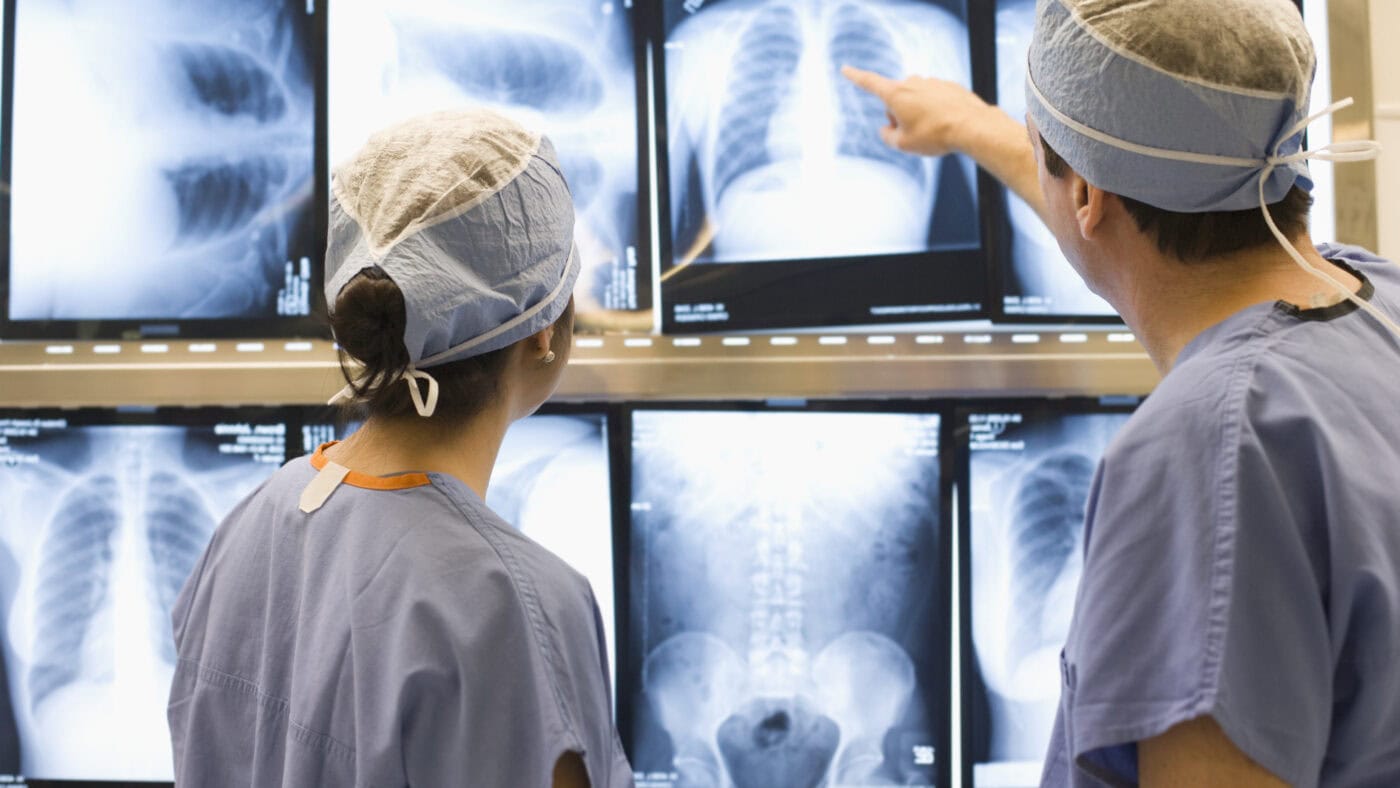When my wife first started complaining of pain in her back in November 2022, three separate doctors initially identified an irregularity in her scan results as an infection, saying she didn’t fit the profile of somebody with lung cancer.
Eleven months later, her lung cancer diagnosis was confirmed. After having part of her left lung removed, thankfully, she was given the all clear a few weeks ago.
I ran her initial March 2023 scan through AI technology developed by my company behold.ai, and the algorithm identified cancer, meaning she could have been diagnosed a year earlier than the protocol we were asked to follow.
Other people will not be so lucky. The latest NHS figures from April show that the waiting list stands at 7.57 million, with more than 300,000 of those waiting longer than a year.
The new Government has made positive noises on its ambition to build an NHS fit for the future. This includes a return to the four-hour A&E target and 18-week target for hospital care, and 40,000 more appointments every week. But while ambition is welcome, cutting waiting lists drastically will be difficult to achieve in the short-term.
It is here that artificial intelligence comes in. Finding ways to incorporate new technologies into the NHS can provide a triple benefit, by saving time, saving money and most importantly, saving lives. AI has the potential to help Labour realise its vision for the NHS.
Recent Health Foundation figures shows there is already majority support for the use of AI in healthcare. Over half of the British public (54%) and three-quarters of NHS staff (76%) said they support the use of AI for patient care, with those numbers rising to 61% of the public and 81% of NHS staff in support of AI for administrative purposes.
The science is clear, this technology works. A recent study by the Mayo Clinic in Minnesota showed that artificial intelligence could be as good at detecting prostate cancer as trained radiologists.
Lung cancer provides us with an example of how AI is already making a tangible difference to lives. Cancer Research UK data shows that there are almost 50,000 new lung cancer cases a year. Lung cancer is the most common cause of cancer deaths, with over 45% of diagnosed cases at stage four.
Those diagnosed at this stage have only a 5% chance of surviving five years or more, compared to 65% of people diagnosed at stage one.
Behold.ai was born out of the desire to improve these chances. The business specialises in speeding up the time taken from x-ray to CT scan while maintaining the accuracy of a radiologist looking at that scan. With 90% of lung cancer misdiagnosis occurring at the chest x-ray stage, this is an area where technology can have a life changing impact for people.
This technology is already being used in individual NHS trusts across the country. Based on its effectiveness locally, our calculations show that if AI is deployed effectively at a national scale, it has the potential to do the equivalent work of 500 radiologists and detect lung cancer in an extra 22,000 patients a year.
It can save millions in the process. We estimate that a £15 million investment now could save the government £100 million in the next five years. Just imagine if we could extrapolate that impact across other types of cancer, including prostate.
If the Labour Government is going to turn the NHS around, embracing AI has a crucial role to play in freeing up time for medical professionals, saving us all money in the long-term, and in ensuring more families are as lucky as my wife and I have been.
Click here to subscribe to our daily briefing – the best pieces from CapX and across the web.
CapX depends on the generosity of its readers. If you value what we do, please consider making a donation.


